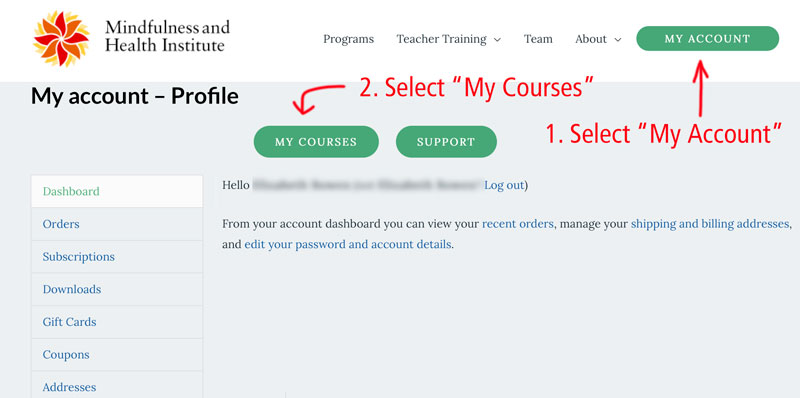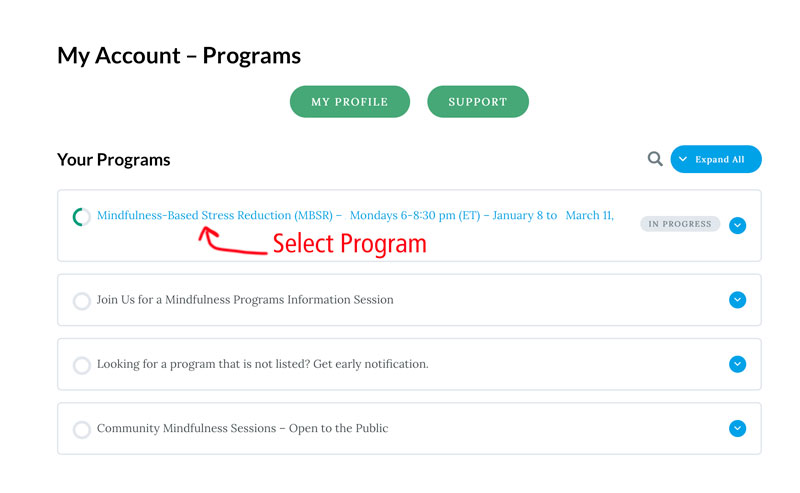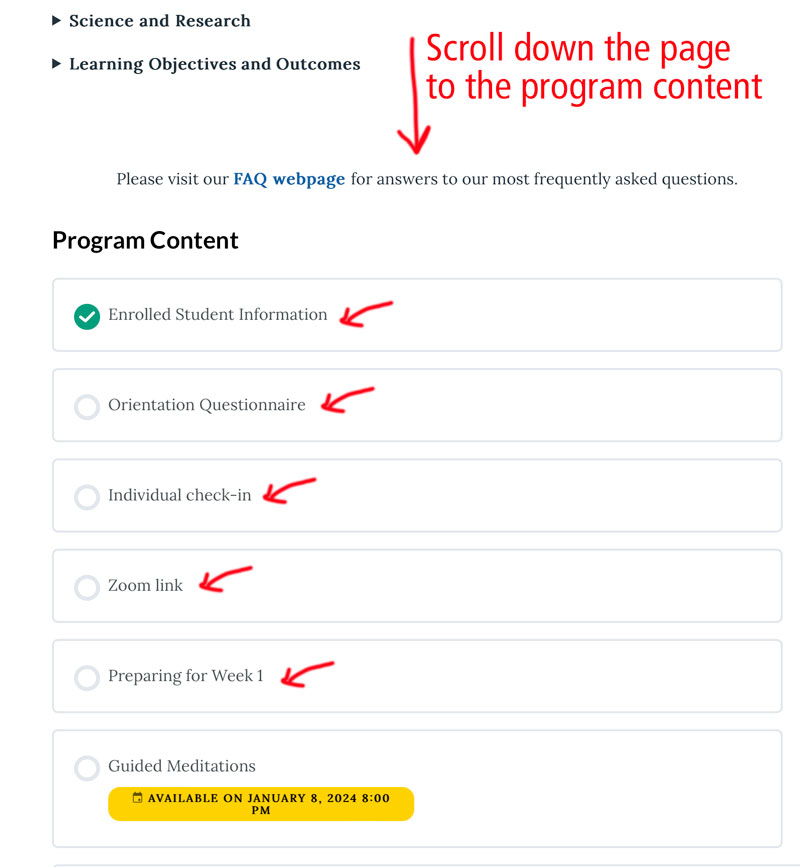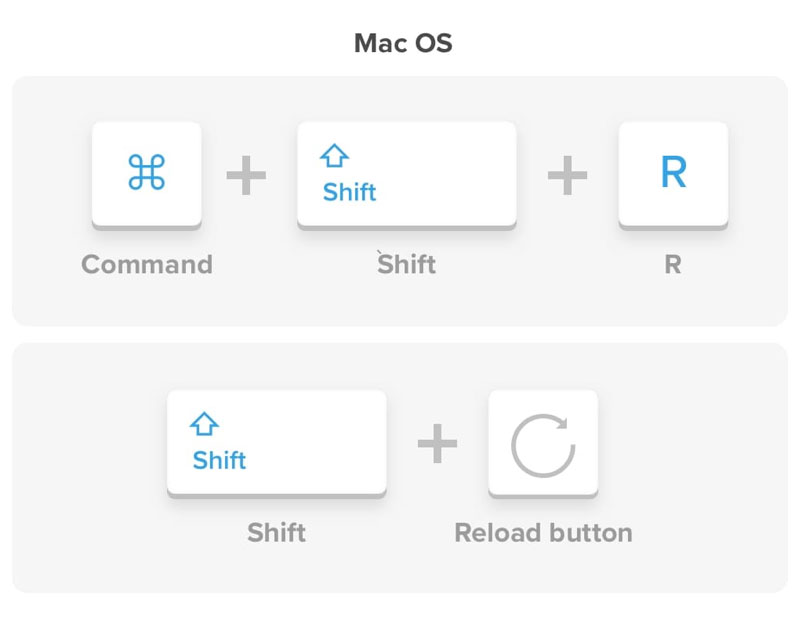Refunds
What is the MHI refund policy and how to request a refund
Refund Policy for classes, retreats, teacher training, and coaching:
For all classes (excluding retreats, Teacher training, and Coaching), you can receive a full refund, minus a $25 processing fee, if requested within 3 calendar days after orientation or the first class, whichever comes first. A 50% refund is available if requested before the start of class two. No refunds will be issued after class two.
For Teacher Training, a full refund, minus a $50 processing fee, is available if requested 30 days or more prior to the training. Between 14 and 29 days before the training, a 50% refund is available. No refunds will be issued within 14 days of the training.
Regarding retreats, requests made 14 days or more before the retreat begins qualify for a full refund, minus a $50 processing fee. For requests made between 14 and 7 days before the retreat begins, a 50% refund is available. No refunds will be provided within 6 days of the retreat.
For Coaching sessions, rescheduling is available. Coaching sessions must be rescheduled at least 48 hours before the session. “No shows” or rescheduling less than 48 hours before a session are forfeited. Extenuating circumstances may be handled on a case-by-case basis. Refunds are not available.
Once refunds are no longer available, there may be an option, under certain circumstances and on a case-by-case basis, to receive a credit for attending a future course within a limited period.
Procedure for Requesting Refunds
The Mindfulness and Health Institute recognizes that your plans may change unexpectedly for reasons outside of your control. Please visit “My Account – Profile” page, select “Orders” and “Request Refund”. Follow the prompts to request a refund.
Upon review and approval, refunds are made in the same way they were paid. Refunds are available within 3-5 business days depending on your financial institution. Contact us at hello@mindfulnessandhealthinstitute.org if you have any questions
Benefits and Risks of Mindfulness-Based Programs
What are the Benefits and Risks of Mindfulness-Based Programs?
Since the early 1980’s, there has been a steady growth of academic research studying mindfulness programs. The many academic journal articles, shown on the graph below, are studies of many mindfulness programs and interventions.
Today, we know, empirically, that there are benefits and risks to mindfulness programs.
Before participating in a mindfulness program, we offer the following information to help you become informed about the efficacy, utility, as well as the potential risks. For many, the benefits are compelling and attainable, while the risks are minimal and manageable. For all of us, it is important we consider these benefits and risks in order to make the best decision possible about attending a mindfulness-based program and practicing mindfulness.
The summary below shows some of the benefits and risks, along with a few of the relevant research resources.
A SUMMARY OF BENEFITS
- An improved sense of well-being
- Improved self-care
- Stress reduction
- Decreased depression
- Decreased anxiety
- Focus and attention
- Emotional regulation
- Decrease in judgment
- Increase in compassion
- Decrease in pain
- Increased awareness and concentration
- More effective coping skills
Resources
Chin, B., Lindsay, E. K., Greco, C. M., Brown, K. W., Smyth, J. M. et al. (2019). Psychological mechanisms driving stress resilience in mindfulness training: A randomized controlled trial. Health Psychology, 38(8), 759–768. https://doi.org/10.1037/hea0000763
Greenburg, J., Romero, V. L., Elkin-Frankston, S., Bezdek, M. A., Schumacher, E. H., & Lazar, S. W. (2018). Reduced interference in working memory following mindfulness training is associated with increases in hippocampal volume. Brain Imaging and Behavior, 13, 366–376. https://doi.org/10.1007/s11682-018-9858-4
Ireland, M. J., Clough, B., Gill, K., Langan, F., O’Conner, A., & Spencer, L. (2017). A randomized controlled trial of mindfulness to reduce stress and burnout among intern medical practitioners. Medical Teacher, 39(4), 409-414. https://doi.org/10.1080/0142159X.2017.1294749
Jha, A. P., Witkin, J. E., Morrison, A. B., Rostrup, N., & Stanley, E. (2017). Short-Form Mindfulness Training Protects Against Working Memory Degradation over High-Demand Intervals. Journal of Cognitive Enhancement, 1, 154–171. https://doi.org/10.1007/s41465-017-0035-2
Loucks, E. B., Nardi, W. R., Gutman, R., Kronish, I. M., Saadeh, F. B., et al. (2019). Mindfulness-Based Blood Pressure Reduction (MB-BP): Stage 1 single-arm clinical trial. PlosOne. https://doi.org/10.1371/journal.pone.0223095
A SUMMARY OF RISKS
- Executive dysfunction
- Asocial behavior
- Insomnia
- Panic and anxiety increase
- Traumatic Reexperiencing
- Heightened awareness of emotions
- Blunting or distancing from emotions
- Pain or discomfort during mindful movement exercises
Resources
OUR COMMITMENT IS TO YOUR SAFETY
Prior to taking any mindfulness program with the Mindfulness and Health Institute, you have the opportunity to meet with us. We offer Information Sessions and one-on-one Advising Sessions at no cost. Also, you may email us at Hello@MindfulnessAndHealthInstitute.org with questions, feedback, or to request a meeting.
Our Instructors are available throughout the duration of the program, as are the MHI staff and leadership. At the end of each program, you have the opportunity to provide feedback through our program evaluation.
You are encouraged to let us know if you have any questions, concerns, or are experiencing any difficulties, physically, mentally or emotionally.
Our advisory council ensures that our programs adhere to evidence-based standards and current research. This involves evaluating the empirical basis, limitations, and risks associated with the curricula content and materials. The advisory council also reviews program evaluations that identify areas in need of improvement and makes recommendations to leadership. The advisory council is comprised of mindfulness-based trainers, teachers, researchers, clinicians and leadership.
ADDITIONAL RESOURCES
- National Institute of Health’s PubMed online library: https://www.ncbi.nlm.nih.gov/
- American Mindfulness Research Association: https://goamra.org/
Trauma-Sensitive Mindfulness, Practices for Safe and Transformative Healing by David Treleaven, 2018. https://davidtreleaven.com/
Your MHI Account
How to access your MHI account and course webpage
Please follow these steps:
- Select “My Account” in the upper right hand corner of any page. You may need to log in. After logging in, select “My Courses”.

2. Select the course you are interested in.

3. Scroll down the page to the “Program Content” and access your content.

You can also review the video below for directions on accessing your Program Information.
How to “refresh” the content in a Session.
Now and again, you may need to “refresh” the content to ensure you have the most recent information. Please follow these steps:
On a Windows/Linux computer
- Hold down Ctrl and click the Reload button.
- Or, Hold down Ctrl and press F5.

Mac OS:
- Hold down ⌘ Cmd and ⇧ Shift key and then press R.
- Or, hold ⇧ Shift and click the Reload button.

How to update or correct your name, email address, and password
Note: The name in your MHI account will appear on your Certificate of Completion.
- Select the “My Account” button on the upper right hand side of the MHI website.
- Login into your account.
- In the left hand menu select the “Account Details” button (third option from the bottom).
- In the “Account Details” section, you can change the spelling of your name, change your email, and update password.
- Click “Save Changes” when you are finished.
How to download your course invoice
After registering for your course, please
- Select the “My Account” button on the upper right hand side of the MHI website.
- Login to your account. In the left hand menu select the “Orders” button (second option from the top).
- Select the “PDF Invoice” button for the course you’d like an invoice for, and the invoice will automatically begin downloading to your computer.
Please note: Our system may take a few days to process your order before the invoice is available.
If your company or other payor needs an invoice before registering for a course, please contact hello@mindfulnessandhealthinstitute.org.
Registration
Where can I get more information about courses?
If you still have questions about a course after reading the description provided on the website, please register for an Information Session.
Have a question about a program you are considering? Schedule an Advising Session.
Are there payment plans available?
Payment plans are available for programs and can be found in your shopping cart. Add a program to your shopping cart and the options will be available under the Affirm and/or Afterpay options.
Is it possible to connect with someone if I can’t attend an Information Session?
If you are unable to attend an information session due to scheduling conflicts or have an urgent matter, please email hello@mindfulnessandhealthinstitute.org.
If you would like to discuss a program you are considering you can schedule a one-on-one Advising Session.
What is the orientation session? Is it an information session?
Orientations are a great opportunity to learn deeply about what to expect and what you can get out of attending your mindfulness class.
When you attend an Orientation, you will get to know if your mindfulness class is a good fit for you at this time. You will also have a chance to speak one-on-one with a teacher to discuss the class.
In the orientation for your class, you will:
- Learn about what mindfulness is and is not
- Experience key practices taught in your program
- Understand the Risks & Benefits
If you find the class is what you are looking for, after orientation and before the first class, you can request a refund.
When are these courses generally offered? When are the next dates?
Many programs, including MBSR and MBCT, are offered quarterly with start dates typically in January, April, July, and September.
Other programs may be offered quarterly or as interest demands. Retreats are offered throughout the year.
Have a question about a program you are considering?
To get answers Schedule an Advising Session.
Having trouble finding a date for an advising session that works? Contact Us
Tuition Assistance
Do you offer tuition assistance?
Yes! All of our introductory mindfulness courses use a sliding scale payment system, so that participants can pay what they can afford. By providing tiers of payment options, MHI hopes to reduce financial barriers, foster inclusivity, increase accessibility, and increase program impact.
Early Bird discounts and payment plans for teacher training programs are available to support access to these trainings as well.
How do I make a donation to support tuition assistance for others and increase access to mindfulness programs?
Thank you, 100% of donations go to fund programs and increase access to mindfulness courses. Please click here to donate to the Mindfulness and Health Foundation non-profit.
Donations help to make mindfulness accessible to a wide range of individuals, including, but not limited to:
- Economically challenged individuals
- Underrepresented populations
- Veterans
- The ill and their caregivers
- Those facing acute and chronic health issues
- Those who want to flourish and live with more ease
- Those in training to bring mindfulness back to their communities
Course Logistics
Where do I find the Zoom link now that I’m registered?
Thank you for registering. The Zoom link is located in your MHI account on the course web page. You can access this by following these steps:
- Select the “My Account” button on the upper right hand side of the MHI website.
- Login to your account.
- Select the green “My Courses” button at the top of the screen. You will be redirected to a page with a list of all courses you have registered for at MHI, including past, present, and future courses.
- Select the appropriate course and scroll down to the bottom of the course web page until you find “Program Content”. Here you will find a session with the Zoom link for all training days.
What is the attendance policy?
MBSR, MBCT, Habit Change, Self-Compassion, and Interpersonal Relationship courses: Participation and group learning is an important aspect of each course. Each session builds upon what has been introduced before, which is why we encourage participants to attend all sessions. However, participants can miss up to two (2) sessions and still receive a Certificate of Completion.
Teacher Trainings: Participants in teacher training programs are expected to attend 100% of the classes.
Retreats: The expectation is that you attend the full retreat, as if it were in-person.
What happens if I miss a class? Is there a way to “make up” a missed class?
Each session builds upon what has been introduced before, which is why it is important to attend all the sessions. To protect the privacy and safety of the participants, courses are not recorded.
Generally, it is not possible to make up a missed class. In some circumstances, MBSR or MBCT participants who are unable to attend a scheduled class may make up the missed session by joining a class that is running concurrently at a different time within the same week, provided a class is available and with the instructor’s permission. Participants must request the instructor in advance if they plan to attend a different class as a make-up session.
Are the sessions recorded?
To protect the privacy and safety of the participants, courses are not recorded.
Will there be homework assignments?
Participants are given suggestions for personal practice toward the end of each class. This includes both recommended guided practices, and also ways to cultivate new habits of mindfulness in everyday life. Depending on the class, these range from 15-45 minutes of daily practice. Each session (except the first) includes a review of the previous week’s personal practice. You will have access to web resources, such as guided practices and/or written material, to support each class.
What happens in the “All-Days”?
The All-Day class is an intensive 7.5 hour session that takes place on the Saturday or Sunday between weeks 5 and 6 or weeks 6 and 7. This day offers participants the opportunity to enhance the meditation practices learned in class and at home, along with new practices. Participants will spend this 7.5 hour class in silence, away from the usual demands and distractions of life, opening the possibility for new insights and perceptions through a kind, curious, non-judgment lens of awareness.
How do I request a Certificate of Completion?
- Select the “My Account” button on the upper right hand side of the MHI website.
- Sign into your account.
- Select the “My Profile” button.
- On the left hand menu select the “Account Details” button.
- Double check your name is spelled correctly in the “Display Name” field. If necessary, update your name to what you want shown on the certificate and click “Save Changes”.
- Next, select “My Courses” in the upper left-hand corner of the screen. You will be redirected to a page with a list of all programs you are registered for, including all past, present, and future courses.
- Select the title of the program you would like to request a certificate for, and scroll down to the bottom of the page until you find “Program Content”.
- In order to request a certificate, all the sessions under “Program Content” need to be marked as complete. Sessions that are completed will have a green check mark next to the left of the session title.
- To mark a session complete, click on the session title, scroll down to the bottom of the webpage, and click “Mark Complete.” Then click “Back to Program” at the bottom of the session webpage, and continue checking that all sessions have been marked as completed.
- Once all sessions have been marked as complete in the MHI Platform, a Certificate of Completion link will appear as a new session at the bottom of “Program Content”.
- Click the Certificate of Completion session link, then click on the blue “Start Survey or Feedback” button and a question will appear asking: Would you like to receive a certificate of completion?
- In the text box below this prompt, please simply write “Yes” and click on the blue “Finish Survey or Feedback” button.
- An email is automatically sent out to the instructor about your request. Once the instructor approves your certificate, there will be a “Download Certificate” button at the top of the program mainpage.
You may also review the video below to complete sessions, request a certificate, and download your certificate.
Post-Course Resources
How long do participants have access to the MHI platform after the class is over?
Participants continue to have ongoing access to the learning platform, even after completing the course. Participants are encouraged to visit the platform to access the course materials to support their practice and ongoing mindfulness journey. It is our intention to continue to make these materials available indefinitely, however, please be aware access to materials may change in the future based on technical or business conditions.
Program information about: MBSR & MBCT
What is the difference between MBSR and MBCT?
Mindfulness-Based Stress Reduction (MBSR) and Mindfulness-Based Cognitive Therapy (MBCT) are both evidence-based mindfulness programs that have been developed to help individuals manage stress and improve mental well-being. While they share similarities in their foundational principles (i.e., non-judging, patience, beginner’s mind, trust, non-striving, acceptance, letting go, gratitude, and generosity), they have distinct differences in terms of their intended applications and approaches.
MBSR involves mindfulness meditation, body scan exercises, gentle yoga, and other techniques to promote self-awareness and stress reduction. It is often used as a general approach for people dealing with stress, anxiety, chronic pain, and various health-related issues. MBSR helps participants become more present in their daily lives, develop non-judgmental awareness, and manage difficult emotions. MBCT, on the other hand, is an adaptation of MBSR that specifically targets the prevention of relapses in individuals who have experienced recurrent episodes of depression and/or anxiety.
MBCT combines mindfulness practices from MBSR like mindfulness meditation, body scan exercises, and gentle yoga with elements of cognitive therapy such as cognitive restructuring. This program aims to help participants become more aware of their thoughts and feelings, particularly those that might contribute to depressive or anxiety symptoms, so that they may disengage from negative thought patterns and behaviors.
Program information about: Retreats
Which retreats qualify for MBSR teacher training?
The 5-7 day retreats offered by MHI meet the requirements for most MBSR Teacher Training Certificate programs. Some certifying bodies accept two 3-day retreats in lieu of a 5-day retreat. Please check with your certifying body to confirm.
Program information about: Train to Teach Introducing Mindfulness
What is the difference between Training to Teach “Introducing Mindfulness” and MBSR teacher training?
There are a number of differences between these two trainings, which are listed below. One unifying element of both programs is the focus on teacher competencies as identified in the MBI:TAC (Mindfulness-Based Interventions: Teacher Assessment Criteria).
Training time: Training to Teach Introducing Mindfulness is a 10-day, 80-hour intensive training.
MBSR Teacher Training is a 2-5 year training program, depending on the training center. The number of courses for certification to teach MBSR vary from as few as 3 to as many as 7.
Training cost: Training to Teach Introducing Mindfulness is $2195.
MBSR Teacher Training can range from $7,000 to $15,000 or more, including training costs, retreat expenses, and other training materials. There are a number of MBSR Teacher Training programs and they vary in content, cost, pre- and co-requisites, and time commitment.
Length of program: Introducing Mindfulness is a series of three 1-hour classes.
MBSR is a series of eight 2.5-hour classes, not including an orientation day and an all-day retreat.
Audience: Training to Teach Introducing Mindfulness is for those who would like to introduce mindfulness into their work, organization, community or other settings where the full 8-week, 2.5 hour course may not be feasible. For example, it is suitable for those intending to introduce brief mindfulness sessions in general population contexts, workplaces, and educational settings, and for healthcare and mental health professionals planning to introduce mindfulness practices in clinical settings.
The MBSR Teacher Training is for individuals who wish to teach the MBSR curriculum, develop a more profound understanding of its principles and techniques, deepen their own practice, and gain mindfulness teaching skills to help others manage stress and enhance well-being.
What is the structure of each training day in Train to Teach Introducing Mindfulness?
Sessions begin with a guided meditation to help settle in and arrive fully. The session is a balance of didactic and experiential learning, and collaborative group work. Participants can anticipate engaging sessions with two 15 minute and one 45 minute breaks during the day. The timing of these breaks will vary, aligning with the content covered that day.
What topics will be covered in Train to Teach Introducing Mindfulness?
- Day 1: Introduction to Mindfulness, The theory of MBCT, the 50:50 practice, the MBI:TLC
- Day 2: Session 1 of the Introducing Mindfulness Program, Teachbacks
- Day 3: Session 2 of the Introducing Mindfulness Program, Teachbacks
- Day 4: Session 3 of the Introducing Mindfulness Program, Teachbacks, Group Skills
- Day 5: Inquiry & dialogue skill building
- Day 6: Personal Practice Intensive
- Day 7: Personal Practice Intensive
- Day 8: Teaching Introducing Mindfulness curriculum in groups
- Day 9: Practices for ‘drop ins’ etc.
- Day 10: Ethics, Implementation, Close
What learning resources are provided in Train to Teach Introducing Mindfulness?
Participants are provided with training manuals, mindfulness exercises, and presentation templates.
- Provide introductory mindfulness presentations
- Facilitate 10-15 minute drop-in meditation sessions
- Lead the 3-session Introducing Mindfulness (IM) curriculum developed by Oxford Mindfulness Centre
- Understand how to provide ancillary tools and resources for a specific organization or audience (e.g., pre-program session, post-program session, drop-in sessions)
Attendance is mandatory, but what happens if I have an emergency in Train to Teach Introducing Mindfulness?
Regular attendance is vital for an enriching learning experience. We expect 100% attendance from all participants. In unforeseen emergencies, please notify us promptly. We work on a case-by-case basis to find compatible solutions when such circumstances arise. Additionally, there are many factors that are taken into account when addressing these situations, so we are unable to address hypothetical or potential scenarios.
Please note that sessions are not recorded. If scheduling conflicts are anticipated, we recommend joining the next available session. Your commitment enhances the learning environment for all.
What are the learning outcomes of the Train to Teach Introducing Mindfulness training?
By the end of the training program, participants can expect to learn how to:
- Provide introductory mindfulness presentations
- Facilitate 10-15 minute drop-in meditation sessions
- Lead the 3-session Introducing Mindfulness (IM) curriculum developed by Oxford Mindfulness Centre
- Understand how to provide ancillary tools and resources for a specific organization or audience (e.g., pre-program session, post-program session, drop-in sessions)
What designation will I have after the Train to Teach Introducing Mindfulness training?
Trainees that complete, with full attendance in all sessions, the Training to Teach Introducing Mindfulness course, will receive a Certificate of Completion from Mindfulness and Health Institute (MHI).
Trainees that receive a Certificate of Completion may go on to complete Supervision of two offerings of Introducing Mindfulness. Once Supervision is completed, the Trainee may receive a Certificate to Teach Introducing Mindfulness and may be listed on the MHI teacher registry. The Oxford Mindfulness Foundation recognizes this MHI program and this collaboration allows trainees to be listed on its website as well.
How do I receive a Certificate to Teach Introducing Mindfulness?
You are eligible to apply for the Certificate to Teach Introducing Mindfulness if you have:
- Completed all of the attendance requirements of your training.
- Taught two 3-session Introducing Mindfulness courses.
- Received 4 sessions of supervision. Supervision sessions are 30 mins in length.
See a list of policies.
Privacy Policy
